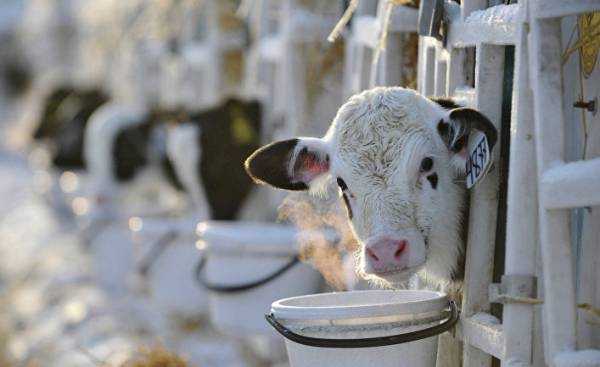
The wholesale price of oil in Europe has almost doubled due to the sharp growth in global demand. Retail buyers, according to Euromonitor (a company specializing in strategic market research — approx. ed.) also pay more, as compared to the previous year, retail prices in June jumped by almost 20%.
An industry trade group that represents French bakers (Federation des Entrepreneurs de la Boulangerie), called the situation “a major crisis” and warned of a sharp growth of prices for croissants, pies and buns. “The price of butter is still fluctuating, but never before has it reached such a level, — said in the statement. — Lack of oil will become a real threat by the end of the year.”
There are several factors behind the rapid increase in prices. The consumption of butter is on the rise due to the growing demand from a number of countries, including China. In addition customers came back to buy dairy products after doubts were expressed in the relationship of oil consumption and heart disease. Meanwhile, oil production in Europe has decreased.
World consumption of butter is recovering after several years of decline, when consumers abandoned butter in favor of margarine and other substitutes. Raphael Moreau, analyst for Euromonitor in food production, notes that consumers are increasingly choosing more natural foods, minimally processed. This applies to butter.
According to the Ministry of agriculture, U.S. (USDA), the average European consumes 8.4 lb (3,81 kg) of butter in 2015, compared with 7.9 lb (3.58 kg) in 2010. The average American consumes 5.6 lb (2,54 kg) of butter in 2015, compared to 4.9 lb (2,22 kg) in 2010.
At the same time, China’s demand for dairy products is growing. The USDA predicts that the import of milk in China will grow by 38% this year, with almost all dairy products exported to China from the EU and New Zealand. The USDA predicts that world oil consumption will grow this year by 3%.
Recent scientific studies have shown that the oil consumption which was believed linked to heart disease and increased risk of death, is not as dangerous as previously thought. According to published in 2016, the study, the consumption of oil has not such a strong influence on mortality rates. “Health problems arise largely from the consumption of sugar, and no fat intake,” says Moreau.
The collapse of prices for oil has occurred after several years of chaos in the European market dairy industry. In 2014, Russia imposed an embargo on European food products in response to sanctions imposed by Europe on Russia due to the annexation (of the territory) of Ukraine. The share of Russia accounted for 24% of exports of butter from the EU. The result was a sharp collapse of prices. In many EU countries, the milk was cheaper than bottled water.
EU going to intervene in the market, but many dairy enterprises were closed. In UK alone, according to Moreau, stopped working more than a thousand productions.
Another problem is the shortage of butter in Europe. According to the European Commission in may 2017 milk production fell by 5%. “While demand has increased, there is a shortage of butter in the EU, because of this, prices will soar,” said Michael liberty, a dairy market analyst at Mintec.
Peter Tuborg, CEO of the British dairy giant Arla, last month warned that Christmas in the country milk and cream will be a deficit.







